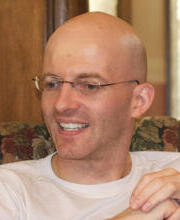Martin Hemberg
Assistant Professor of Immunology

The Hemberg group carries out research in computational genomics, and our interests are in developing and applying algorithms for analyzing large high-throughput datasets. Typically, members of the group work on two types of projects; development of novel computational methods and collaboration with experimental groups to help them analyze and interpret their data. In the past we have found a good deal of synergy between these two types of projects. On the one hand, our collaborative efforts may lead to ideas for new methods that can solve problems for which there are no existing tools. On the other hand, we have frequently been able to establish new collaborations with groups interested in applying methods that we are developing to their unpublished data.
Many of the methods that we have developed in the past are for single-cell RNAseq (scRNAseq) data, including unsupervised clustering based on transcriptional profiles, clustering based on genotypes, mapping across datasets, and efficient searching. In addition, we have developed methods for genome analysis, including transposon detection, identification of microexons, liquid biopsies, and characterization of mutational determinants in cancer. We are interested in developing computational methods that can be used to address central questions in genomics and immunology that are intractable using existing computational methods. In particular, we are interested in combining large datasets to allow for synergistic insights. Moving forward, we would like to develop methods for additional technological platforms, including multi-omics data and spatial transcriptomics.
In addition, we have collaborated with several experimental groups on projects related to cancer, immunology, and neurobiology. This includes investigations of gene regulation in the development of the hematopoietic system, Alzheimer’s disease, and the tumor microenvironment. In these projects, we typically work closely with the experimentalists to ensure that we understand the data, and that the interpretations are based on solid statistical and computational methodology.
Contact Information
Brigham and Women's Hospital
Hale Building for Transformative Medicine
60 Fenwood Road, 9th floor (9016Z)
Boston, MA 02115
Hale Building for Transformative Medicine
60 Fenwood Road, 9th floor (9016Z)
Boston, MA 02115
